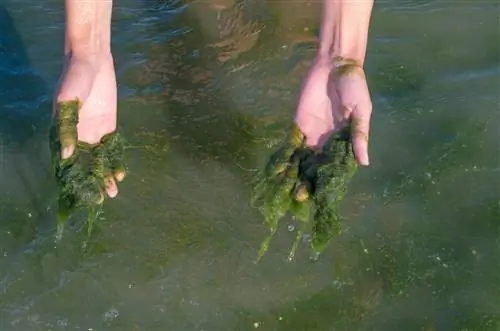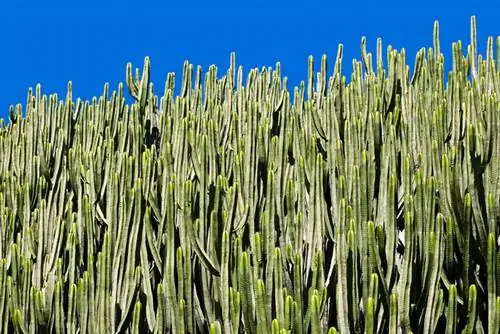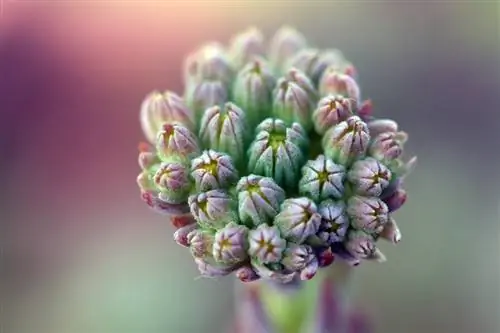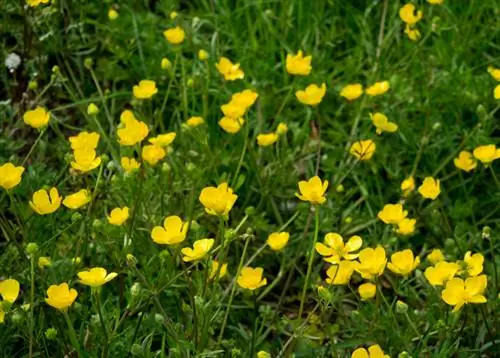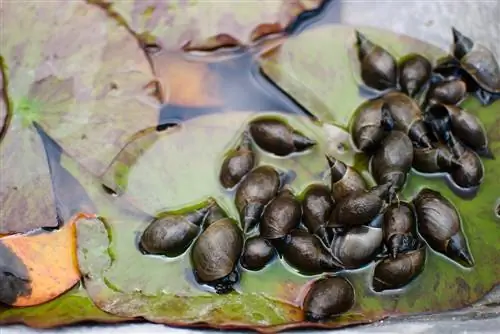- Author admin [email protected].
- Public 2023-12-25 17:45.
- Last modified 2025-06-01 06:02.
Algae are sometimes referred to as aquatic plants, but on the other hand they are also signs of poor water quality in the aquarium. Sometimes they are useful, sometimes harmful. But what is algae really? A special type of plant or something completely unique?
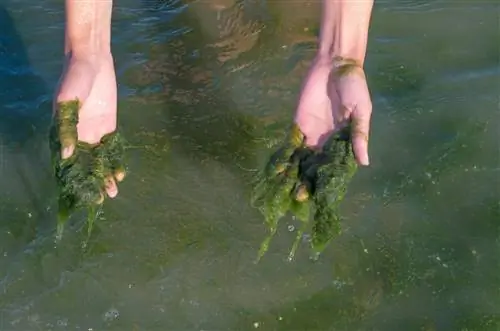
Are algae plants?
No, algae arenot plants and not a special group, but a collection of various eukaryotic organisms. Most species occur in different bodies of water. Similar to plants, many algae carry out photosynthesis, which is why they are often incorrectly referred to as aquatic plants.
What are algae anyway?
Algae areeukaryotic, plant-like living beingsEukaryotic means that the cells of algae have a cell nucleus, like the cells of other living beings (animals, plants, humans or fungi). Algae are closer to plants than to other living beings because they also carry out photosynthesis. The term “algae”, however, is more of a collective name and not a specific group or species. Algae can be unicellular, but there are also multicellular ones Macroalgae.
What types of algae actually exist?
In addition to being divided according to size intomicro and macroalgae, algae can also be divided according to their habitat into marine and freshwater algae, but also aerial algae. A microalgae is microscopically small, macroalgae can grow up to 60 meters long. The well-known types of algae include, for example, blue-green algae (Cyanobacteria), which actually belongs to the bacteria, but also seaweed.
Are all algae harmful?
No, algae arenot fundamentally harmful, some species are even bred for food purposes, such as nori seaweed, which is often used for sushi. These are mostly red algae. Aonori (=blue/green seaweed), which is also a foodstuff in Japan, is a green algae. They are mainly used for seasoning, but can also be sprinkled as small flakes over rice or sashimi.
Tip
Caution iodine - keep an eye on the dose
Sushi is very popular in many circles and many vegetarians swear by seaweed as a he althy food. However, a certain degree of caution is required. The nori seaweed and aonori used for food purposes belong to the seaweeds. Accordingly, they contain certain amounts of iodine. Therefore, seaweed should only be consumed in moderation. If you have an overactive thyroid, it is recommended to avoid eating algae altogether.

